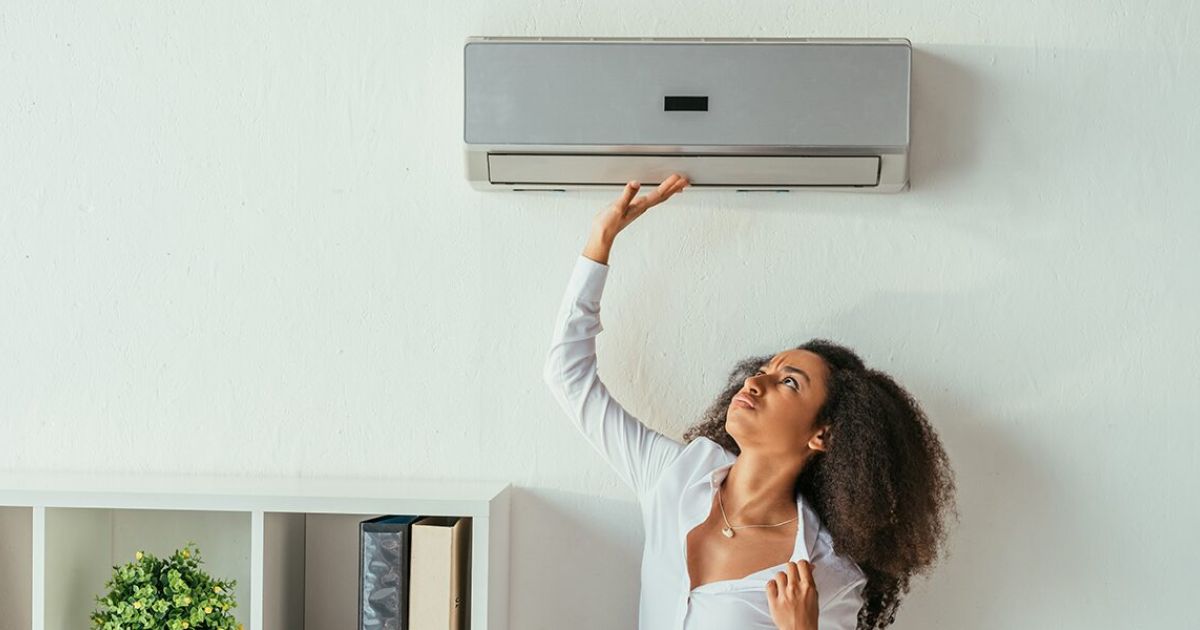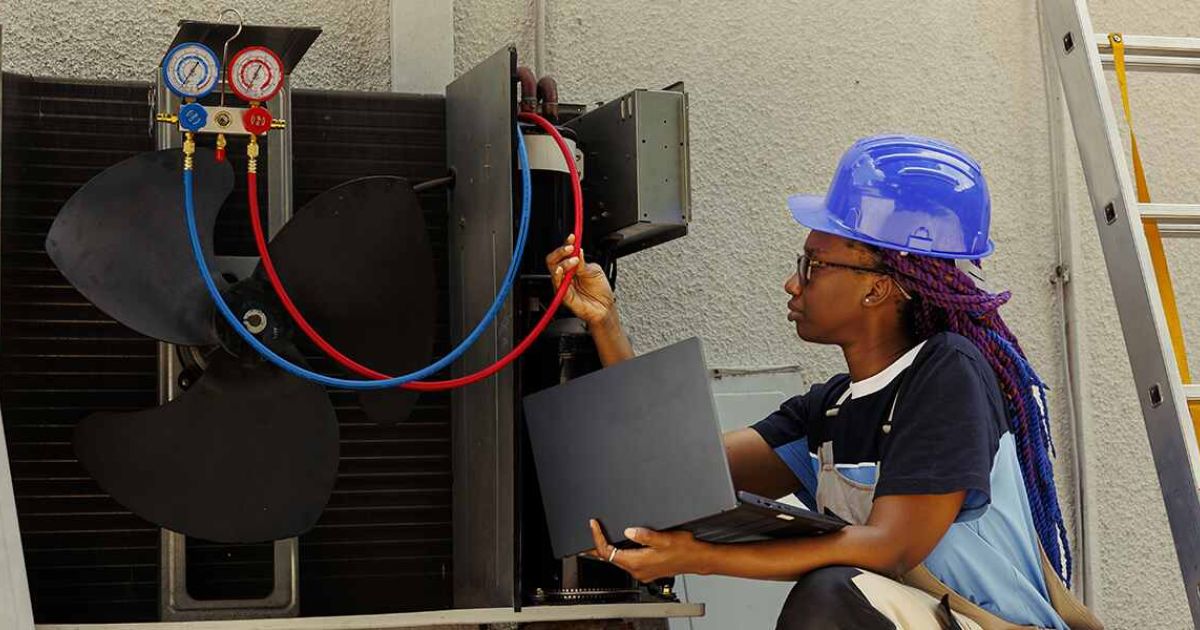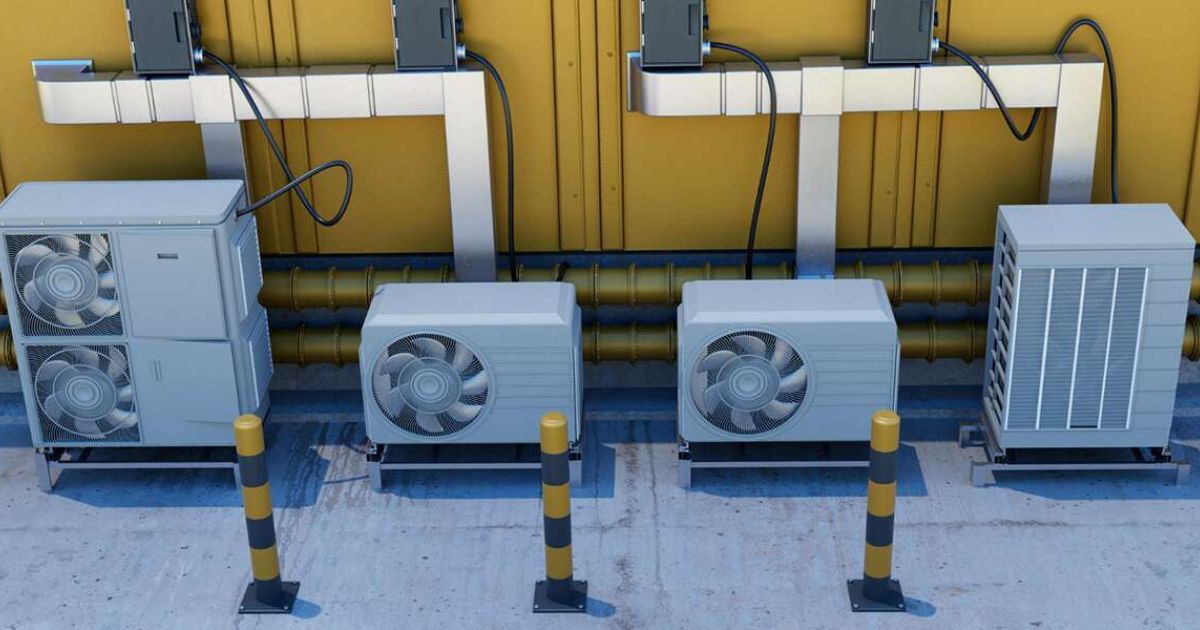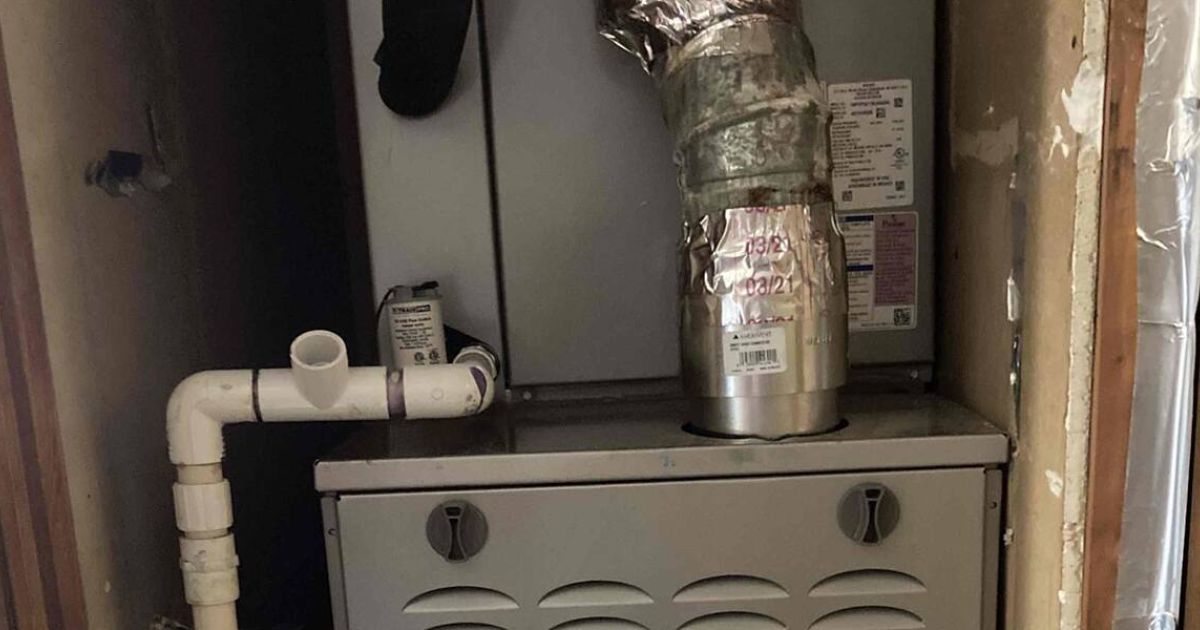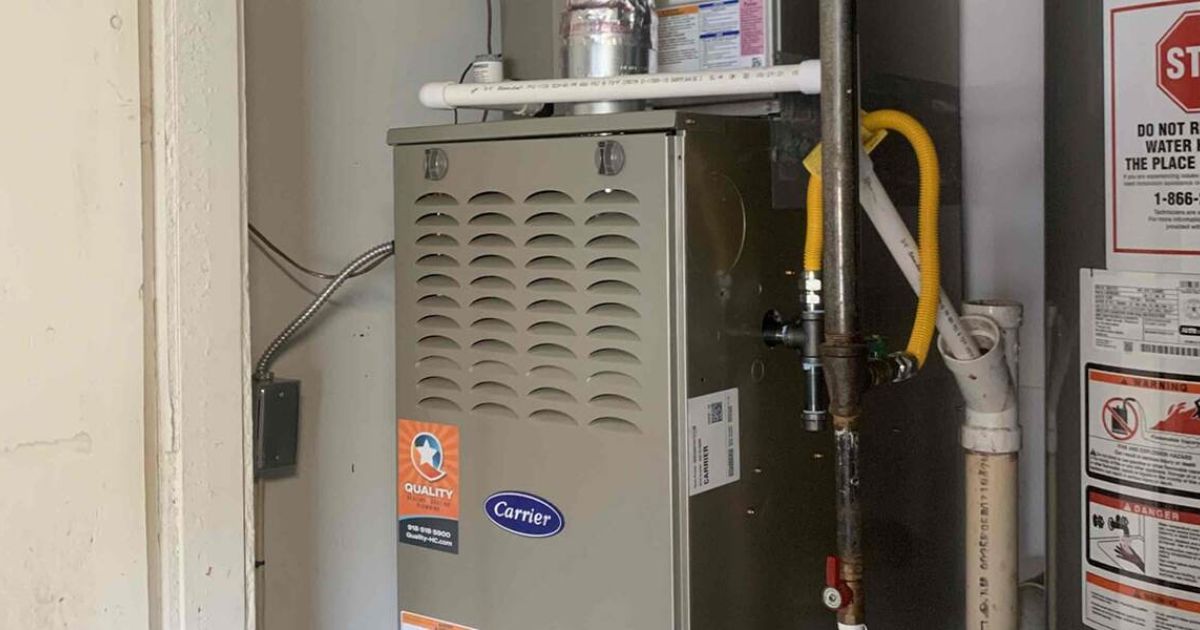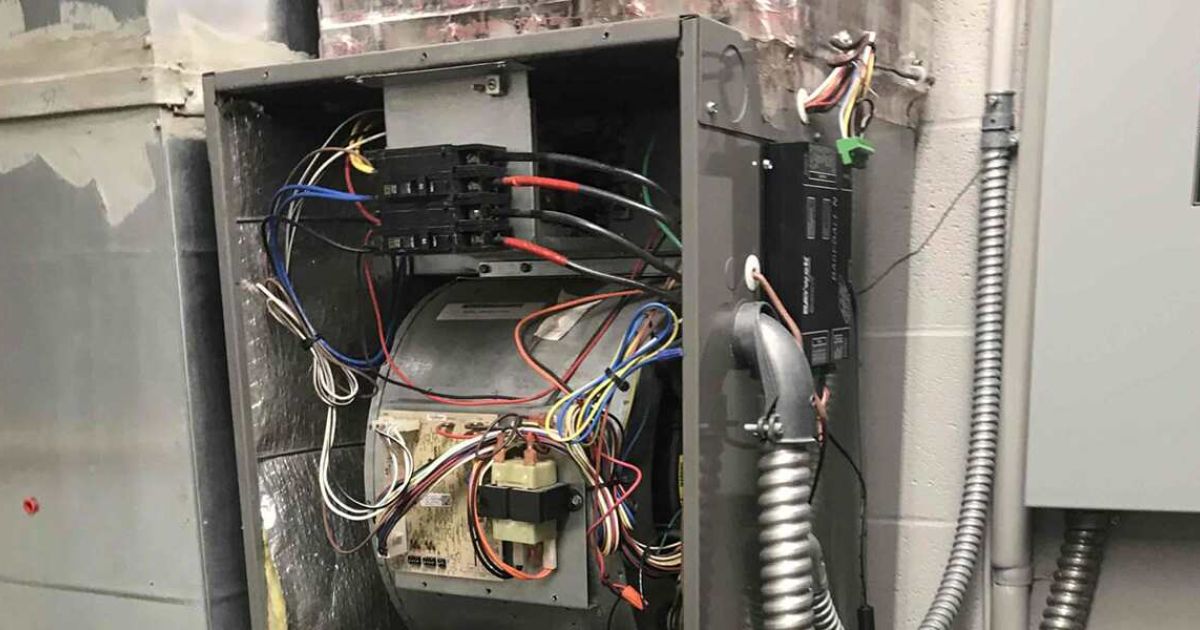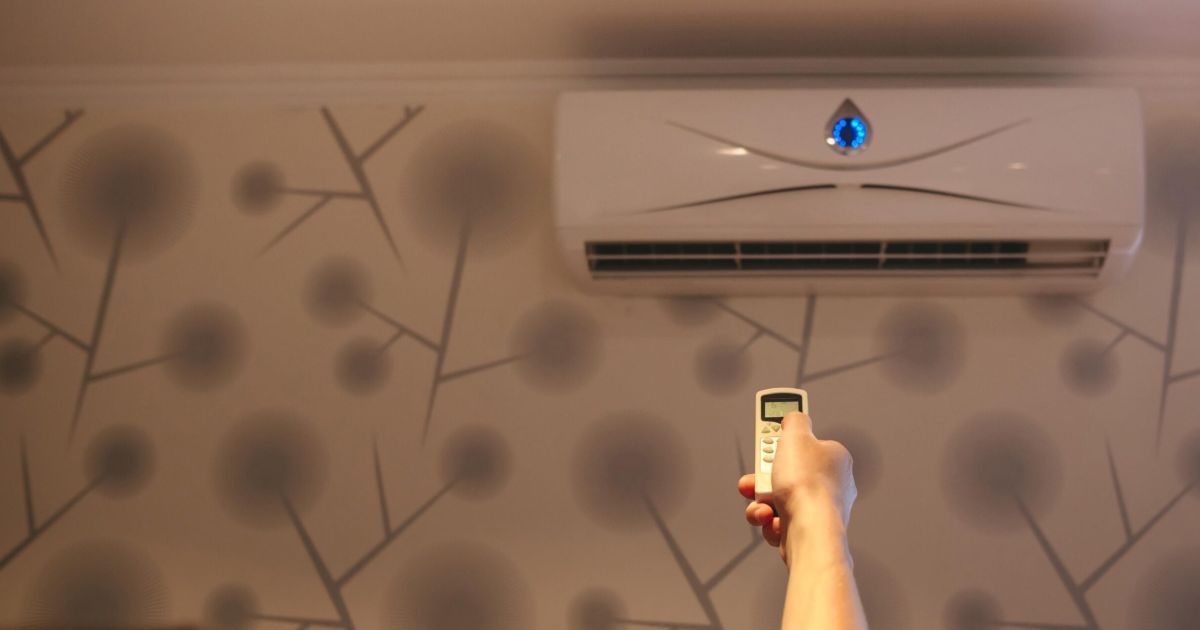
Quality Heating, Cooling & Plumbing can help you with the proper AC placement. Tulsa, OK, residents can call us today at 918-212-0122!
Many factors should influence the type of air conditioning units you buy and how you use them. For example, many homeowners may think of elements like an AC unit’s size, energy efficiency, cost, etc. However, another factor people need to think about is AC placement.
Choosing the proper location proves essential for any HVAC system, whether a heat pump condenser, split air conditioner, or another unit. You’ll situate most systems indoors, including air handlers and furnaces. Indoor placements allow these appliances to access your ductwork and vents.
However, your air conditioner’s compressor or condenser unit has vastly different needs. This guide will explore where you should place your AC unit and why this location makes a difference. You may also require an expert from Tulsa’s AC repair service.
Where Should You Place Your Air Conditioning Unit?
Depending upon the type of air conditioner you have, you may have indoor and outdoor units. However, homeowners should never install an AC unit’s condenser indoors, like in their attic, basement, or crawlspace.
You should place your AC unit’s condenser outdoors due to your system’s evaporator coil. Your evaporator coil extracts heat from your home, and your condenser works to release this hot air.
If you install this unit indoors, this captured heat will disperse throughout your home’s floors, ceilings, and every room. Essentially, doing this will defeat your air conditioner’s primary purpose.
An improper AC placement also forces your unit to run prolonged cycles. These lengthy cycles attempt to battle the extra heat, resulting in higher energy bills. You also risk wearing down your unit’s crucial components more quickly.
Depending on your model, you can expect your air conditioner to last between 15 and 20 years. However, this lifespan stems from proper maintenance and installation. Worn-down parts and higher operating costs can significantly cut down on this lifespan.
Your AC unit’s condenser also needs vast fresh air volumes to spread heat sources properly. Unfortunately, spaces like basements and attics don’t provide enough area for suitable air circulation.
Does It Matter Where You Place Your AC Unit Outside?
You now know you need to place your AC unit’s condenser outside. However, your follow-up question might be if it matters where exactly you put this outdoor unit.
You’ll want to find a covered or shady spot for the best results. These types of areas will optimize your unit’s energy efficiency. A shady or well-covered spot prevents your unit from using too much energy to convert temperatures before sending it back into your house.
Your hot condenser coil will spread extracted heat sources more efficiently when you place it in a cooler environment. A level surface that sees the least amount of sunlight is ideal.
However, one other consideration to have in mind is not to place your AC unit close to overgrowing foliage. This overgrowing foliage can quickly clog your unit’s filters. If you decide to place your AC near vegetation or hedges, regularly trim them.
Should Other Factors Influence Your AC Placement?
A few other factors may influence the AC placement that you should take into consideration. For example, most homeowners prefer placing an AC unit far away from a space with a lot of activity.
Although air conditioners are becoming quieter, some can still make plenty of noise, especially when working overdrive on a hot, humid summer day. HVAC technicians can help pinpoint the best locations to place your AC unit.
Creative Ways To “Hide” Your AC Unit
The best AC location for energy efficiency might not be the best for aesthetics. However, you can have the best of both worlds instead of trying to compromise one for the other. Let’s examine four creative ways to hide your AC unit:
1. A Dedicated Space
If you have many outdoor items like lawnmowers, pool supplies, garden hoses, etc., you can create a dedicated space to store them.
A small shed built on the side of your house can be a great place to store these items alongside your air conditioner. Just ensure it has plenty of ventilation.
2. Vegetation and Structural Screens
Placing your AC unit on your patio provides another method you can try. A customized cover for your unit might be outside of some homeowners’ budgets. Plant screens, on the other hand, provide a budget-friendly alternative.
You can also incorporate a garden filled with climbing plants to add a vertical twist.
3. Fence Your Air Conditioner In
Fencing your air conditioner offers a simple option for concealing it. However, for a next-level design, you’ll want your fenced-in air conditioner to blend with the rest of the area.
4. Find Ways To Distract Viewers
You can find many creative ways to distract viewers from looking at your air conditioner. For example, have a gorgeous garden with a customized walkway, beautiful vegetation, and maybe even a waterfall.
With all these features present, no one will look at the air conditioner stashed away in the corner.
What Other Factors Matter Besides Placement?
Besides AC placement, plenty of other factors matter, including:
The Cost
Of course, your budget will significantly impact the AC unit you buy. However, you shouldn’t just buy the cheapest model available as they’re often not as energy efficient. Likewise, the most expensive unit may not be practical for your home’s needs.
The Size
For your home or business, you want the right-sized air conditioner. HVAC technicians can help you choose the correct size.
Overall Quality
Some AC units offer greater durability, last longer, and provide better energy efficiency than others. High-quality systems can slash your energy bills, and you won’t need to maintain or repair them as often.
Call Quality Heating, Cooling & Plumbing Today
AC placement, alongside factors like size and cost, plays a significant role in your AC unit’s effectiveness. Our team can help pair you with the right unit and install it in the right place.
Tusla, OK, residents can learn about common AC wiring issues by calling Quality Heating, Cooling & Plumbing at 918-212-0122!

Cassie Pound is the Vice President of Quality Heating, Cooling, Plumbing & Electric with locations in Tulsa, Glenpool, and Bartlesville, Oklahoma.


